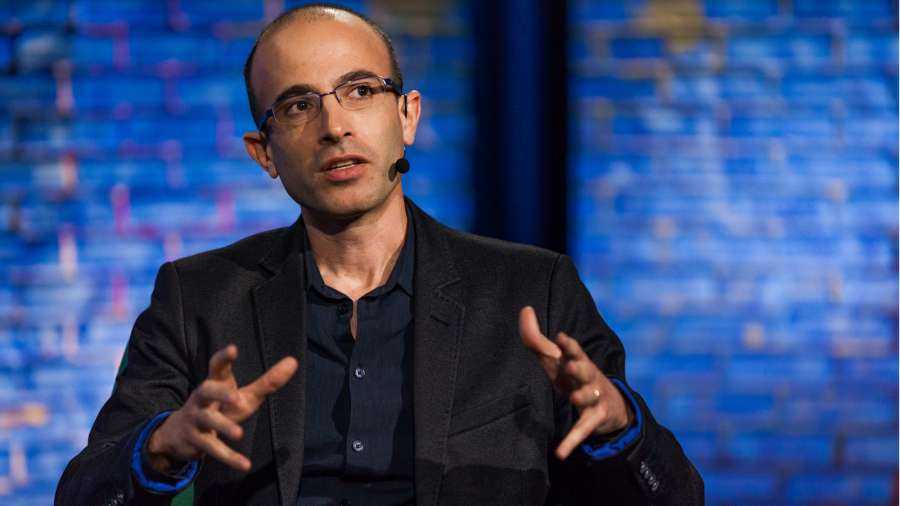on
BY SIMONE J. SMITH
“At present, people are happy to give away their most valuable asset—their personal data—in exchange for free email services and funny cat videos. It’s a bit like African and Native American tribes who unwittingly sold entire countries to European imperialists in exchange for colourful beads and cheap trinkets.” Yuval Noah Harari, 21 Lessons for the 21st Century
From the beginning of time, the leaders of the world have turned to their advisors to assist them with making decisions that are constructive and calculated. An advisor is a person who provides advice in a specific field. They can be consultants, confidants, aides, helpers, teachers, coaches or even gurus.
An advisor holds a unique position within an organisation. Those who visibly demonstrate power, end up being seen as the de facto leader. They must be free of any conflict of interest to be able to offer sound council and advice; they are expected to view things without fear or favour. In difficult situations they are required to demonstrate that they possess the spine to offer consultation and advice, which may run contrary to this view of the leader.
The description above shows exactly how important an advisor’s role is, and it is why I must share with our readers the scary fact that our leaders are being advised by a man that holds such biased and alarming views, it makes me think; what is our world coming to?
Yuval Noah Harari is a lead advisor for Klaus Schwab. Klaus Schwab is the author of COVID-19/The Great Reset and the founder of The World Economic Forum. Yuval is praised by the likes of: Klaus Schwab, Barack Obama, Mark Zuckerberg, and Bill Gates, who reviewed Harari’s latest book on the cover of the New York Times Book Review. Harari has spoken at the World Economic Forum at Davos, New York Times, Stanford, TED, and TimesTalks.
Bill Gates and President Barack Hussein Obama have strongly endorsed Yuval Noah Harari’s book Sapiens: A Brief History of Humankind and Klaus Schwab has repeatedly asked Yuval Noah Harari to speak at The Word Economic Forum.
Why is this important to know? Well, if you haven’t had a chance to read our cover story, I would suggest you read it now. We have elected officials who are actively being reared and mentored by Klaus Schwab, and the man who stands closely as an advisor to him is Yuval Noah!
Instead of trying to convince you of what is to come, I have provided a few of Yuval’s thoughts on humanity, life, people and our future. After reading them, let me know your thoughts. Is this the type of advice we want our leaders to be adhering to? You be the judge.
“Easiest people to manipulate are the people who believe in free will” Yuval Noah
“As far as we can tell from a purely scientific viewpoint, human life has absolutely no meaning. Humans are the outcome of blind evolutionary processes that operate without goal or purpose. Our actions are not part of some divine cosmic plan, and if planet earth were to blow up tomorrow morning, the universe would probably keep going about its business as usual. As far as we can tell at this point, human subjectivity would not be missed. Hence any meaning that people inscribe to their lives is just a delusion.” Yuval Noah Harari, Sapiens: A Brief History of Humankind
“We should never underestimate human stupidity. Both on the personal and on the collective level, humans are prone to engage in self-destructive activities.” Yuval Noah Harari, 21 Lessons for the 21st Century
“Everyday millions of people decide to grant their smartphone a bit more control over their lives or try a new and more effective antidepressant drug. In pursuit of health, happiness and power, humans will gradually change first one of their features and then another, and another, until they will no longer be human.” Yuval Noah Harari, Homo Deus: A Brief History of Tomorrow
According to the science of biology, people were not ‘created’. They have evolved. And they certainly did not evolve to be ‘equal’. The idea of equality is inextricably intertwined with the idea of creation.
The Americans got the idea of equality from Christianity, which argues that every person has a divinely created soul, and that all souls are equal before God. However, if we do not believe in the Christian myths about God, creation, and souls, what does it mean that all people are ‘equal’?
“Evolution is based on difference, not on equality. Every person carries a somewhat different genetic code and is exposed from birth to different environmental influences. This leads to the development of different qualities that carry with them different chances of survival. ‘Created equal’ should therefore be translated into ‘evolved differently’.” Yuval Noah Harari, Sapiens: A Brief History of Humankind
“First, if you want reliable information, pay good money for it. If you get your news for free, you might well be the product.” Yuval Noah Harari, 21 Lessons for the 21st Century
“The greatest scientific discovery was the discovery of ignorance.” Yuval Noah Harari, Homo Deus: A History of Tomorrow
“Corporations and governments are collecting data about where we go, who we meet and what movies we watch. The next phase in surveillance under the skin.” Yuval Noah Harari
Readers, please share your thoughts. Which one of these quotes triggered you? Which one left you thinking? How comfortable do you feel knowing that our elected officials are following a man whose thoughts are as such?
Stay in the loop with exclusive news, stories, and insights—delivered straight to your inbox. No fluff, just real content that matters. Sign up today!
We, as humans are guaranteed certain things in life: stressors, taxes, bills and death are the first thoughts that pop to mind. It is not uncommon that many people find a hard time dealing with these daily life stressors, and at times will find themselves losing control over their lives. Simone Jennifer Smith’s great passion is using the gifts that have been given to her, to help educate her clients on how to live meaningful lives. The Hear to Help Team consists of powerfully motivated individuals, who like Simone, see that there is a need in this world; a need for real connection. As the founder and Director of Hear 2 Help, Simone leads a team that goes out into the community day to day, servicing families with their educational, legal and mental health needs.Her dedication shows in her Toronto Caribbean newspaper articles, and in her role as a host on the TCN TV Network.













